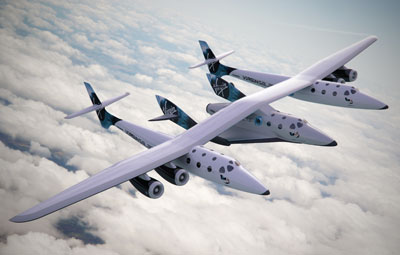Will Oberstar kill the NewSpace industry?by Taylor Dinerman
|
| Airlines have been flying since the late 1920s. If in those early days they had had to respond to today’s safety requirements they would never have gotten started. |
For the moment the space industry is joined at the hip with the aviation industry. Over the long term this is going to change, but not for at least another five or ten years. Any damage to the major firms’ core activity will inevitably hit the space sector. This would add to the pain, but would not wreck the business. Commercial and government satellites and spacecraft would still be built and launched, even at a slower rate and at lower profit margins. Boeing and Lockheed Martin are not going the way of Lehmann Brothers or perhaps GM, at least not for another 10 years or so.
Small NewSpace companies have no reason to be complacent. If the published rumors are correct and Jim Oberstar—the Congressman from Minnesota whose proposal a few years ago to regulate the safety of the space tourism industry as if it were the airline industry failed to gain any traction in the House—becomes Secretary of Transportation, there will be trouble. Suborbital space tourism as it is currently being promoted by Virgin Galactic, XCOR Aerospace, and others, is in its infancy. The first flights of SpaceShipTwo or the Lynx have not yet taken place, but few serious observers doubt that it is going to be a moneymaker for those involved. If, and it is a big if, the government regulates it with a light hand.
The former FAA Associate Administrator for Commercial Space Transportation (AST), Patti Grace Smith, under both Presidents Clinton and Bush made the right decision and it should be allowed to stand. She made it clear that it is the job of the government to protect the public on the ground and to permit individuals to fly in these dangerous rocketplanes as crew and as passengers, as long as they do so in full knowledge of the risks involved, is a good one. It has allowed these firms to develop business plans that do not require gigantic liability coverage. Not even a well-capitalized venture such as Virgin Galactic could make a go of it if they had to buy insurance for their passengers.
Airlines have been flying since the late 1920s. If in those early days they had had to respond to today’s safety requirements they would never have gotten started. In those days and even up to the 1950s and 1960s air travel was seen as something fairly dangerous. The FAA joined with the industry and over time developed a safety system that the country can be proud of. It will take decades for suborbital space tourism and perhaps point-to-point rocket transportation to be equally safe. To stop the process now will kill or cripple the NewSpace sector before it has gotten out of the cradle.
Space tourism is only one part of the NewSpace industry, but it is the most important one in the sense that it is opening up a whole new source of income. The other aspects, such as the SpaceX Falcon series of launchers and the Dragon resupply and crew transport capsule, will perform old tasks better and at lower cost. The revenue from space tourism (or personal spaceflight if that is the preferred term) will finance new launchers that will, as time goes on, reduce the costs of access to orbit and develop new and very reliable space vehicles.
| The business is too high risk to have to overcome major scientific and technical problems and at the same time face a hostile government. |
Since the principal source of investment capital for the industry has been very well off entrepreneurs, the meltdown in the stock market may not have the damaging impact that we see on other sectors. However, these men are no fools, and if the government places too many obstacles in the way some of them—maybe most of them—will pull out. The business is too high risk to have to overcome major scientific and technical problems and at the same time face a hostile government.
The promise of the NewSpace industry is huge. In the long term it includes new sources of clean energy and the eventual expansion of humanity’s economic sphere into the solar system, and in the short term it will provide thousands of new high-quality jobs for Americans. It would a shame to lose them at a time when the country needs all the employment it can get.
